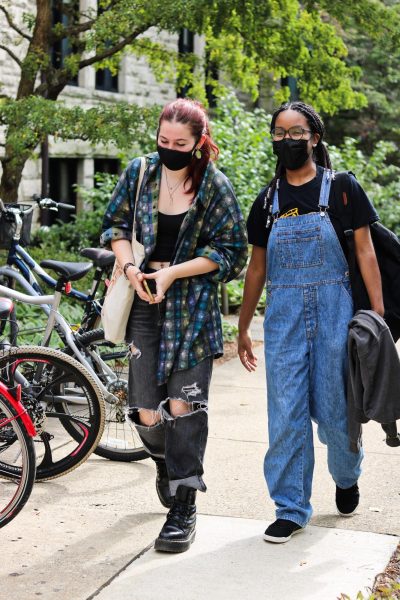Faculty Sponsors Should Be Lenient with Winter Term Projects
One of Oberlin’s most unique selling points is our Winter Term program. Students must complete three Winter Term projects to graduate, and the time is supposed to be an opportunity for students to delve into something they would not otherwise have the time to do.
One crucial aspect of the Winter Term program is that all projects are graded pass/fail, which, in theory, provides students with an opportunity to leave their comfort zones with minimal consequence, allowing them to set ambitious goals and experiment with new activities that they may not be particularly experienced with. However, it seems as though there are at least a few professors on campus who focus too much on the student’s final product, and not enough on the time, effort, and learning that went into the project.
Winter Term is supposed to be about learning. Project goals should be flexible, and students should not be penalized for having to change their project if the original goal is too lofty. Receiving credit for a Winter Term project should be contingent upon putting in the work and hours required to have a valuable educational experience, not on doing exactly what you thought you would do when you applied for your project in November. For the most part, faculty members respect this. Plenty of students have had to change their Winter Term goals over the course of the month-long session and have done so without consequence. Nonetheless, I have heard about multiple instances of students failing Winter Term projects, and their professors do not always have good reasons to fail them.
One friend of mine spent their Winter Term writing a full-length play, only to fail their project because they were unable to produce a complete, polished script. Even though they wrote more than 40 pages worth of material, they had not done exactly what they had expected to do vis-à-vis writing a finished script. It is conceivable that, had they set a less ambitious goal for themself, they would have passed handily. Instead, the professor was so set on the original project goal that they neglected to take into account the importance of the learning that came from the experience. If a sponsor is considering failing a student, it is critical that they take into account not only the end product but also the experience the student had.
I spoke to Robert S. Danforth Professor of History and former Chair of the Winter Term Committee Renee Romano about how she determines whether a student has successfully completed a Winter Term.
“It’s really, ‘Did the student spend the time and show that they spent some time and gave it some thought?’” Romano said. “I’ve had Winter Terms where a student sets out to do something and it doesn’t work. That’s still a Winter Term and it’s still a good Winter Term. … To me, the only time someone doesn’t pass Winter Term is if they just don’t do the work.”
She recounted an instance years ago when she sponsored a student who set out to build a mandolin.
“Ultimately, I don’t think the mandolin got built, or it didn’t work … but, to me, that’s okay,” Romano said.
Given this year’s unusual schedule and the extra stress students have had to endure because of it, it was more important than ever that faculty took into account the circumstances surrounding each student’s experience with the program. Unlike most years, where students come into Winter Term from a restful couple weeks of break, this year, students didn’t even have a day to unwind after a stressful and draining finals period.
“There was no downtime, there was no time for reboot, and it was just hard,” Romano said.
Romano sponsored a group research course for Winter Term this year, and she worked to ensure that the students were able to have some time to recover from finals. She wanted to make sure she knew how students were doing so she could plan accordingly.
“I told my students in my group Winter Term if they ever felt stressed, they had to come talk to me,” she said.
I asked Romano what advice she would give to faculty sponsors in the event that we have to follow this bizarre Winter Term schedule again, and she emphasized the importance of understanding how the schedule would impact students.
“Like all good pedagogy, be aware as much as you can of what your students are experiencing so that you can try to meet them where they are with what they need,” she said.
For group projects, she said, “If your class is exhausted and you can tell, you may want to throw out your lesson plan and think about, ‘What can we do to make this a learning space even when everybody looks like they just want to crawl under the table?’”
For individual projects, this year’s schedule meant understanding that students have never experienced the back-to-back sequence of school, Winter Term, and school again, and that we may have been more drained than we originally thought when we submitted our project outlines in November.




